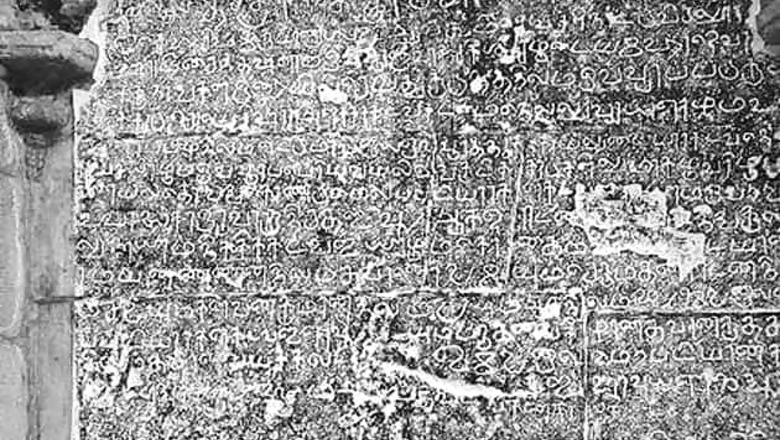
views
Pudukkottai: As many as 18 inscriptions belonging to the later Chola period, especially that of renowned Chola emperor Raja Raja, were found at a Lord Siva temple at Visalur village near Keeranur here. J Rajamohamad, former curator, Government Museum, Pudukkottai and president of Pudukkottai historical and cultural research centre and K Rajendran, secretary, stated that the Siva temple at Visalur village near Keeranur in Kulathur taluk was an early Chola edifice, attributed to the period of Parantaka I.
The temple is a small ekatala structure made of granite with vimanam, ardhamandapam and mahamandapam. This temple occupies an important place in the evolution of temple architecture in Tamil Nadu. So far, six inscriptions have been recorded here. In a recent conservation process, the Archaeological Survey of India (ASI) has removed the stucco coating on the walls of the vimanam and mandapams. The new inscriptions that have come to light date back to the period of Raja Raja I, Rajendra Chola II, Kulothungachola III, and Rajathiraja besides that of some local chieftains.
These inscriptions throw much light on the Chola administration in this region. The Chola empire was divided into Mandalams (zones) and Valanadus (a group of villages). Visalur was situated in the Jayasingakulakala valanadu in Mel Sengilinadu as learnt through the inscription of Raja Raja I in the year 997 AD. This inscription describes the large extent of land gifted by villagers, its measurement, boundaries, quantum of paddy to be used in each ritual and puja and festivals to be celebrated. The inscriptions refer to the main deity as Sri Vasuhisvarar, mentioned in many inscriptions, though the Lord is now known as Sri Margapurisvarar. The circumstances and period under which the change was made could not be ascertained.
The other inscriptions explained various festivals, burning of perpetual lamps, providing holy water in the temple and vast tracts of lands, huge amount of money as gifts by rulers, chieftains, commanders, village assembly and philanthropists.




















Comments
0 comment